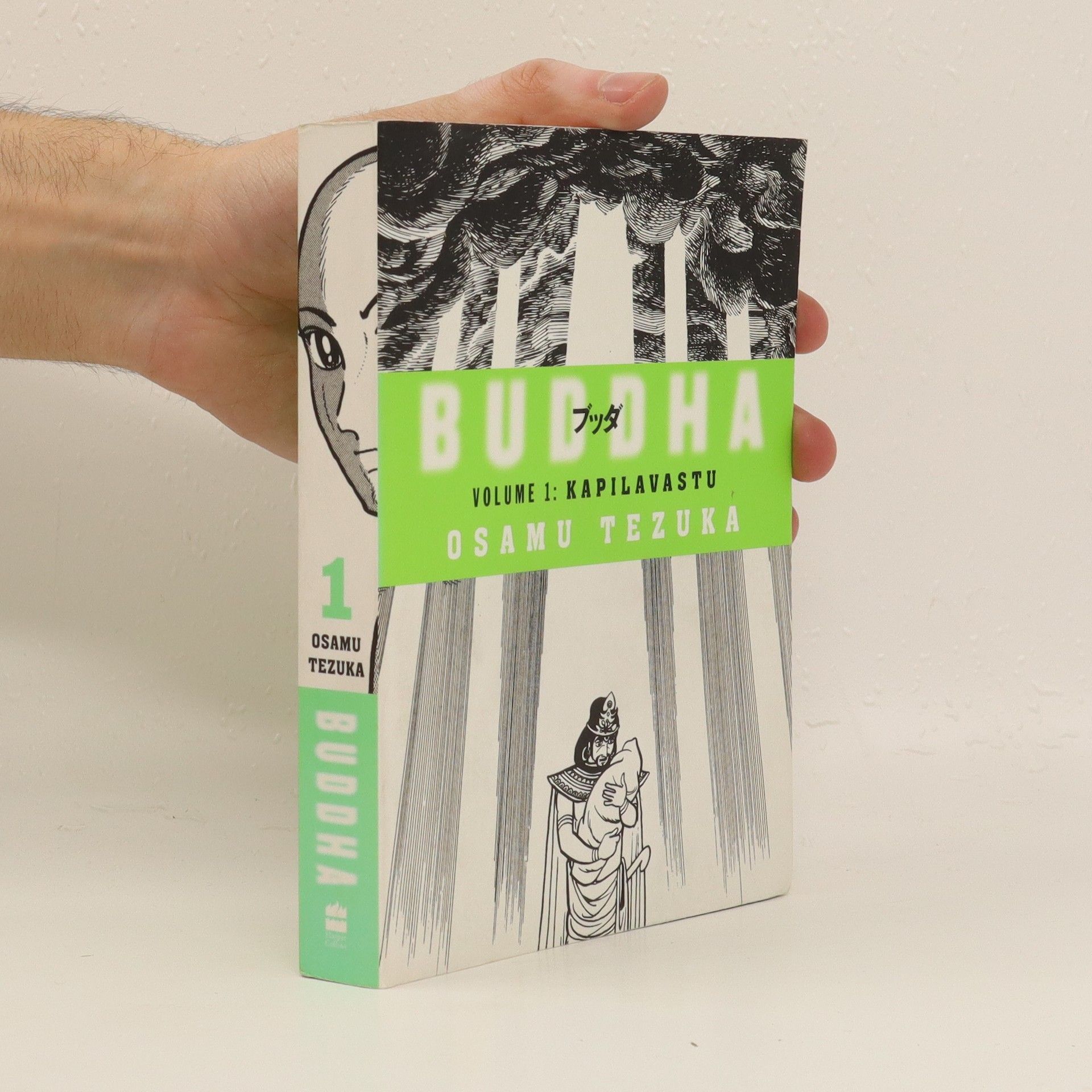'Buddha' is the ultimate example of Tezuka's storytelling genius and artistic mastery. The progenitor of manga as we know it, and the inspiration for countless artists, Tezuka continues to elicit the deepest awe with his sweeping grasp of the human condition.
Buddha Serie
Questa saga epica approfondisce la vita del principe Siddhartha mentre intraprende un viaggio verso l'illuminazione nell'antica India. Una narrazione magistrale fonde intuizioni filosofiche con azione, emozione e conflitto, mentre il protagonista mette in discussione le norme sociali e cerca la verità. L'opera esplora idee profonde sull'interconnessione della vita, la compassione e una vita sensata. Mantiene il coinvolgimento del lettore attraverso immagini dinamiche e un approccio umanistico, a volte persino leggermente umoristico.






Ordine di lettura consigliato
- 1
- 2
The first volume of Tesuka Osamu's fictional biography of Siddhartha, Gautama Buddha. Introduces Chapra, a slave boy who tries to escape his fate; Chapra's slave mother, who sticks by him no matter what; Tatta, a crazed wild child pariah who communes with animals; and Naradatta, a monk attempting to decipher strange portents of the Buddha's birth
- 3
Buddha 3: Devadatta
- 256pagine
- 9 ore di lettura
The first volume of Tesuka Osamu's fictional biography of Siddhartha, Gautama Buddha. Introduces Chapra, a slave boy who tries to escape his fate; Chapra's slave mother, who sticks by him no matter what; Tatta, a crazed wild child pariah who communes with animals; and Naradatta, a monk attempting to decipher strange portents of the Buddha's birth
- 4
Buddha 4: The Forest of Uruvela
- 376pagine
- 14 ore di lettura
Renowned for its critical acclaim, this work has garnered prestigious Eisner and Harvey Awards, showcasing its excellence in storytelling and artistry. The narrative weaves intricate characters and compelling themes, offering readers a deep exploration of its subject matter. The book stands out for its unique approach, blending humor and poignancy while tackling complex issues. With stunning illustrations and a captivating plot, it invites readers to engage with both the characters' journeys and the broader societal implications presented throughout the story.
- 5
In the fifth installment of manga-godfather Osamu Tezuka's Buddha, engagement with death imparts the lesson of life's sanctity. In a Machiavellian rise to power, Devadatta, a rogue aristocrat, incites war between two kingdoms that will leave thousands dead. King Bimisara of Magadha, fearing death his son's own hand, withdraws fatherly love. The true measure of the Buddha's divinity will turn out to be a test of diplomacy - the power of words.
- 6
The sixth book in the classic eight volume graphic novel series retelling the story of Buddha, from the godfather of the genre.
- 7
Osamu Tezuka's vaunted storytelling genius, consummate skill at visual expression, and warm humanity blossom fully in his eight-volume epic of Siddhartha's life and times. Tezuka evidences his profound grasp of the subject by contextualizing the Buddha's ideas; the emphasis is on movement, action, emotion, and conflict as the prince Siddhartha runs away from home, travels across India, and questions Hindu practices such as ascetic self-mutilation and caste oppression. Rather than recommend resignation and impassivity, Tezuka's Buddha predicates enlightenment upon recognizing the interconnectedness of life, having compassion for the suffering, and ordering one's life sensibly. Philosophical segments are threaded into interpersonal situations with ground-breaking visual dynamism by an artist who makes sure never to lose his readers' attention. Tezuka himself was a humanist rather than a Buddhist, and his magnum opus is not an attempt at propaganda. Hermann Hesse's novel or Bertolucci's film is comparable in this regard; in fact, Tezuka's approach is slightly irreverent in that it incorporates something that Western commentators often eschew, namely, humor.
- 8
The eighth book in the classic eight volume graphic novel series retelling the story of Buddha, from the godfather of the genre.